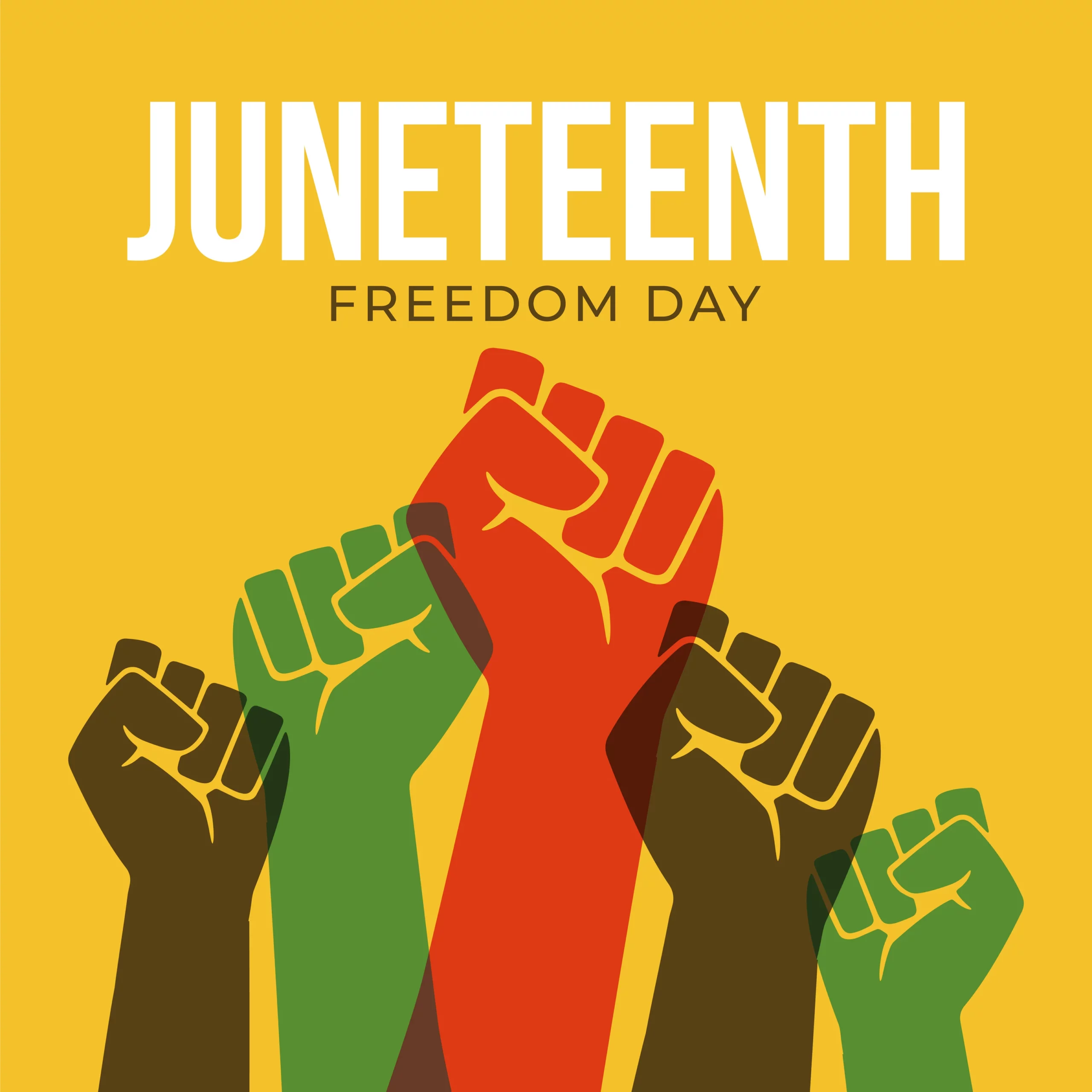
No One Is Free Until We Are All Free: Honoring Juneteenth
In 1939, when Opal Lee was 12, a mob of 500 white supremacists set fire to her family home. At the time, Opal lived in a predominantly white neighborhood in Fort Worth, Texas. Her home was destroyed and no arrests were made. Opal went on to live a life of teaching and activism, including advocating for federal recognition of Juneteenth for more than 40 years.
Although the Emancipation Proclamation, which freed enslaved people in the U.S., took effect on January 1, 1863, many enslaved people were not actually freed until much later. In 2016, at age 89, Opal planned a 1,400 mile walk from Fort Worth to Washington DC., walking 2.5 miles a day to commemorate the 2.5 years it took for the Union army to arrive in Texas to enforce the Emancipation Proclamation and free all of the enslaved people in Texas. On June 17, 2021, this “Grandmother of Juneteenth” was at the White House to witness President Joe Biden sign into law the recognition of Juneteenth as a federal holiday.
Our company understands and honors the history and meaning of this incredibly significant date and the people who fought so hard to make Juneteenth a federal holiday so that the lives of enslaved people are not forgotten. Therefore, we will once again be closed on Monday in commemoration.
Closing our doors on June 19 gives our company a three day weekend, but the significance – the “why” of this annual time away from work – gives us a chance to reflect on and honor this hard won historical milestone. When Opal’s home was burned to the ground by white people in 1939, the date was June 19. Opal once said, “The fact that it happened on the 19th day of June has spurred me to make people understand that Juneteenth is not just a festival.”
For us, it serves as a reminder that even as we make progress, racial barriers still exist. The CDC and American Medical Association recognize racism – systemic, cultural, interpersonal – as a barrier to health equity and optimal medical care. It is racism, not race, that is a social determinant of health. Freedom comes in many forms, including freedom to expect health equity.
At Genome Medical we utilize genomics to protect and advance human health across all ethnic, racial and geographic groups. As part of our commitment to equity, equality and justice, we consistently asked ourselves how we can make meaningful change to the inequities and racism that persist within our institutions, workplaces and the health care system.
Three years ago, we created Force for Good, a series of initiatives and commitments to promote meaningful change. This work includes:
Embedding Diversity, Equity, Inclusion & Belonging (DEIB) Throughout Genome Medical
We’ve created a DEIB Core Team with representation from teams across the company to better assess how Genome Medical can ensure that DEIB is part of everything we do. We are creating plans to improve how we advance patient care, technology and awareness of genetic services across health care to drive health equity and inclusivity. We are also gathering information from our teams to identify the most needed and impactful opportunities to create a sense of belonging and support for all.
Supporting Diversity in Research
We actively support research initiatives to foster diversity in genomic health data. We also support clinical trials that target rare and hereditary diseases that adversely impact the Black community.
Creating Access for Underserved Communities
We work to break down disparities in access to genomic health care by enabling easy, virtual access to our clinical care team for patients everywhere. Here are a number of specific initiatives:
- Increase reimbursement coverage for our services so we are more accessible to all patients.
- Provide ready access to our Patient Financial Assistance Program. Genome Medical is committed to providing financial assistance to qualified low-income, uninsured and underinsured patients when the ability to pay for services is a barrier to accessing medical care.
- We are members of the Health Evolution Health Equity Pledge to collect and review data about the race, ethnicity, language and sex of our patient population and act to reduce disparities based on that information.
Increasing Workforce Diversity
In alignment with our commitment to gender and racial parity at Genome Medical, we subscribe to the Parity Pledge. We are dedicated to reaching a diverse candidate pool and we also strive to make the genetics workforce more diverse overall. Here are some additional efforts:
- Many of our team members participate in mentorship programs designed to open up the field of genetic counseling and medical genetics to students in various stages of their academic career, so the genomic industry better represents the diversity of our patient population.
- In order to engage students from under-represented groups to learn about genomics, we hold an annual Force for Good high school essay contest. The goal is to invigorate interest in this rapidly growing area of health care to help build a stronger, more diverse pipeline of future clinical and business leaders. We recently announced our 2023 winners.
- We hold quarterly pre-genetic counseling webinars that feature genetic counselors discussing the profession and clinical and ethics case studies. Our next webinar is August 22, 2023 at 12 PM PT / 3 PM ET
In 2021, Opal Lee told the Associated Press “We don’t want people to think that Juneteenth is a stopping point, because it isn’t. It’s a beginning, and we’re going to address some of the disparities that we know exist.”
At Genome Medical we will continue to examine how we can do better, be better and make meaningful change in genomic health care equity. Because we understand that no one is free until we are all free.

